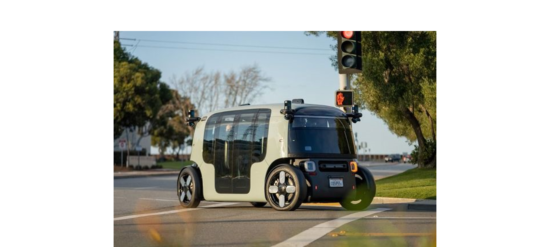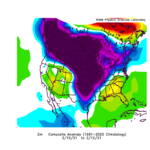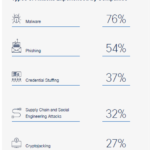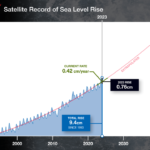March 28, 2017 – It has been seven years of writing, this journey of mine. Today marks the 2,000th entry to the site which I began back in October of 2009. I’ve enjoyed sharing my interests in a wide range of subjects and hope that the blog has fulfilled my four goals: to inform, educate, inspire, and speculate.
A few months ago I told you I had started writing a book focused on many of the subjects discussed here. Today I thought I would share some of that content from the preface. I call it The Challenge of the 21st Century.
From where we are today to where we will be when 2100 arrives is a mere 83 years. That’s about the average lifespan of humans today. So within a single lifetime, we may see the seeds we sow lead to success or failure.
What are those seeds?
Will the robots we create and artificial intelligence software code we develop end up ruling us or will we harness these technological advances to improve life for all here on Earth and beyond?
Will our biomedical and genetic breakthroughs end aging, disease, and death, setting us on a path to immortality? Our ability to revert body cells to a primordial state, insert alien genetic information into our genome, and create artificial and medicinal aids to overcome our life limitations represent triumphs of science and technology as well as a Pandora’s Box of potential problems.
Will we finally balance human births and deaths to stem explosive growth of world population? Forecasts of between 10 and 12 billion humans on the planet by 2100 suggests a far more constrained world of limited resources. Where will humans live? Will we be able to feed them all? Will there be enough fresh water? Can our scientific and technological prowess address the challenges of 5 billion more of us? How will we keep the lights burning and the machines running if we can no longer rely on traditional sources of energy derived from burning carbon?
Today scientists tell us we are in the middle of a Great Extinction event. In the past our influence on extinction and biodiversity was limited. But not anymore. Our encroachment on the remaining natural preserves of the planet is diminishing biodiversity. But at the same time, our science and technology are giving us the means to bring back lost biodiversity. Today scientists are talking about bringing back the American Chestnut tree and the Wooly Mammoth. But between now and 2100 we may want to use our technology to restore animals and plants that today face extinction and not ones that have been extinct for centuries and more.
Climate change brought on by human activity, defined as anthropogenic, represents the greatest threat to human existence as we know it today. At no time in Earth’s past, other than the rise of the first single-cell organisms, has the activities of a species influenced climate until now. Driven by our technological advances we are now at a crossroad. Continuing current behaviour our scientific community overwhelmingly points us to a much warmer world than at anytime human civilization has existed.A warming world may sound like a good thing but it is not. Scientists talk about tipping points leading to the melting of our polar land and sea ice, rising sea levels that will inevitably wash away most of the world’s great cities, and weather changes that will disrupt not only our means of feeding ourselves but much of the rest of life on this planet.
And finally, will we experience Childhood’s End? When Arthur C. Clarke published his novel in 1953, Childhood’s End described the arrival on our planet of alien overlords who brought a utopian existence to humanity but at a cost, our distinct identity. I’ve borrowed the title not to write about alien encounters, although our first may happen before the end of this century, but to describe how we will begin to become a self-sustaining species capable of living independently of Earth. From growing potatoes on Mars to self-sustaining space habitats, humanity is on a path to extend our reach beyond our home planet and to achieve the first steps in this century.
So why write this book now?
Because for the last seven plus years I have been researching and writing about all of these subjects through a blog which bears the same name as this book. I began blogging in 2009 during a period when I was considering retiring my management consulting practice which had focused on technology startups. In my work, it had become clear to me that the 21st century, more than any previous one was pivotal to human existence.
This had come about because of groundwork laid by technology and scientific progress in the 20th century, a hundred year run that was revolutionary, and positive as well as destructive in ways never seen before. In the 20th we invented more than in the entire recorded history of our species. We built technology and languages to emulate logical human thought processes in machines, capable of learning and thinking on their own. We took the technologies forged in the Industrial Revolution of the previous century and spread them around the globe. We mastered our understanding of human biology, developed antibiotics to fight disease, and developed treatments to fight many cancers and other incurable maladies. We increased the average human lifespan by more than double and launched a global population bubble. And we developed an agricultural green revolution to ensure we could feed our growing population. We went from flying balloons and airplanes to launching rockets to send the first human explorers off planet to low-Earth orbit and beyond to the Moon.
These were enormous accomplishments but they came with a planetary price. Our technological and scientific success spawned wars of devastating consequence. Our industry polluted air, land, and water. We became the instrument of death not only for our own species but for hundreds of other species of animal and plant, leading to declining biodiversity only equal to those observed in our study of the cataclysmic geological record. And we began to raise the planet’s temperature by burning in one century a significant portion of the accumulated carbon stored through natural processes in Earth history over hundreds of millions of years.
In inheriting the legacy of the 20th century we have begun in the first two decades of the 21st, to experience further consequences of our technological and scientific successes and failings leading to existential questions about our future and that of the planet.
There is far more to come as I continue to draft and edit chapters. I promise to share some of the content and hope you will be kind enough to critique what I submit to you to read. Thank you for visiting here. With almost 2 million words written to date, and 3 million of you visiting the site since it began, I am grateful to have you along for the ride.
















